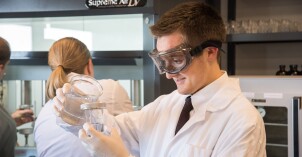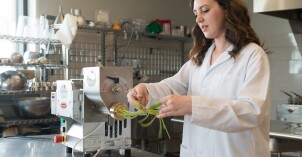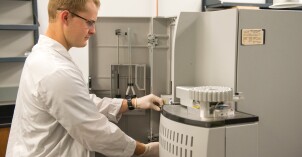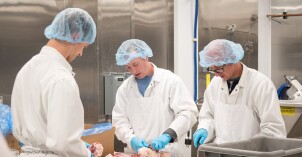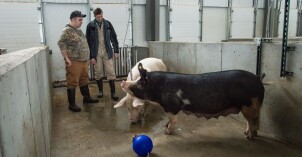
Make a Difference
Students will learn the fundamentals of animal science, which will prepare them for a variety of opportunities when they graduate. In all the major emphases, students learn the seven pillars of animal science, which are: 1) genetics, 2) reproduction, 3) nutrition, 4) production, 5) behavior, handling and welfare, 6) health and disease, and 7) animal benefit and use. Graduates will be prepared to work in agricultural production, animal care, and more.
Highlighted Career Paths
Graduates with a degree in Animal Science have a wide array of rewarding careers before them. Check out some of the top careers students get with this degree or explore more career options in I-Plan.
Veterinarian
Veterinarians care for and treat sick and injured animals. They also perform surgeries, analyze the issues of animals, and a variety of other tasks. Aspiring students typically need to attend graduate school to become a veterinarian.
Animal Biotechnologist
The main duty of an animal biotechnologist is to study how an animal’s health is impacted by nutrients. Animal Biotechnologist’s will then analyze their data and adjust improve the feed and reproductive process of animals.
Agricultural and Food Scientist
Agricultural and food scientists mainly work in conducting research for livestock and field crops. They also experiment and analyze data to improve livestock and crops. They are an important part of maintaining and expanding the nation’s food supply for both meat and crop food.
Highlighted Courses
Build foundational knowledge in animal biology, nutrition, and physiology while developing practical skills through hands-on labs and internships. Prepare for diverse careers in animal care, agriculture, and related industries with expertise in economics and scientific principles.
